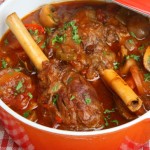LowCarb Diets Are You Losing More Than Weight
The average American eats about twice as much protein than what they require. Some people, in the pursuit of thinness, are going on low-carb diets and are eating up to four times the protein their body needs. Protein deficiency is certainly not a problem in America. So exactly how much protein do you really need? Much less than you think.
Protein is a vital nutrient, essential to your health. In its purest form, protein consists of chains of amino acids. There are 22 amino acids that combine to form different proteins, and 8 to 9 of these must come from the foods we eat. Our body uses these amino acids to create muscles, blood, skin, hair, nails and internal organs. Proteins help replace and form new tissue, transports oxygen and nutrients in our blood and cells, regulates the balance of water and acids, and is essential for making antibodies.
However, too much of a good thing may not be so good for you. Many people are putting their health at risk by eating to much protein. Excessive protein consumption, particularly animal protein, can result in heart disease, stroke, osteoporosis, and kidney stones. As important as protein is for our body, there are many misconceptions about how much we really need in our diet, and the best way to obtain it.
According to the American Heart Association and the National Institutes of Health, as little as 50-60 grams of protein is enough for most adults. This breaks down to about 10-12% of total calories. Your body only needs 0.36 grams of protein per pound of body weight. To calculate the exact amount you need, multiply your weight in pounds by 0.36 (if using kilograms, multiply your weight in kilograms by 0.8). This will give you your optimum daily protein requirement in grams. Infants, children, pregnant and nursing women require more protein.
People on low-carb diets are consuming up to 34% of their total calories in the form of protein and up to 53% of total calories from fat. Most of these people are unaware of the amount of protein and fat that is contained in the foods they eat. For instance, a typical 3-ounce beef hamburger, which is small by American standards, contains about 22 grams of protein and 20 grams of fat. You achieve quick weight loss on these diets because of this high fat content.
High fat foods give you the sensation of feeling full, faster, so you end up eating fewer total calories. However, this type of protein and fat combination is not the healthiest. Animal proteins are loaded with cholesterol and saturated fat. Many people on these diets also experience an elevation in their LDL (the bad) cholesterol when they remain on this diet for long periods. High levels of LDL cholesterol in the blood, clog arteries and is the chief culprit in heart disease, particularly heart attack and stroke. So while you may lose weight in the short-run, you are putting your cardiovascular health in jeopardy in the long-run.
Another reason weight loss is achieved on these low-carb diets, at least temporarily, is due to water loss. The increase in the amount of protein consumed, especially from meat and dairy products, raises the levels of uric acid and urea in the blood. These are toxic by-products of protein breakdown and metabolism. The body eliminates this uric acid and urea by pumping lots of water into the kidneys and urinary tract to help flush it out. However, a detrimental side effect of this diuretic response is the loss of essential minerals from the body, including calcium. The high intake of protein leaches calcium from the bones, which leads to osteoporosis.
Medical evidence shows that for every 1 gram increase in animal protein ingested the body loses an average of 1.75 milligrams of calcium in the urine. Additionally, as calcium and other minerals are leached from our bones, they are deposited in the kidneys, which can form into painful kidney stones. If a kidney stone becomes large enough to cause a blockage, it stops the flow of urine from the kidney and must be removed by surgery or other methods.
Plant-based proteins, like beans, legumes and soyfoods, also provide fiber, which helps lowers LDL cholesterol and raises HDL (the good) cholesterol. This prevents the build up of arterial plaque, which leads to atherosclerosis (hardening of the arteries) and heart disease, thus reducing the risk of heart attack and stroke. The amount and type of protein in your diet also has an important impact on calcium absorption and excretion.
Vegetable-protein diets enhance calcium retention in the body, and causes less calcium excretion in the urine. This reduces the risk of osteoporosis and kidney problems. Interestingly, kidney disease is far less common in people who eat a vegetable-based diet than it is in people who eat an animal-based diet.
By replacing animal protein with vegetable protein, and replacing saturated fat with unsaturated fat (like olive and canola oils), you can avoid the pitfalls of the typical high-protein low-carb diet. You will improve your health and regulate your weight while enjoying a vast array of delicious, nutritionally dense, high fiber foods.
Remember, eat everything in moderation and nothing in excess. Also, the healthy way to lose weight and keep it off is to eat nutritiously and make permanent lifestyle changes that allow you burn more calories than you take in.
Copyright ? 2005 Monique N. Gilbert. All rights reserved.
-
Best Weight Loss Tips - Your Weight Critically Affects Your Dates
Have you ever felt conscious about the bulge in your tummy or sagging
-
Childhood Obesity: Your Kids And Heart Disease!
Shockingly, it is estimated that 22 million of the worlds children
-
Special Weight Loss Alert - How to Adjust your Metabolic Clock.
Tired of Dieting Failures? If you are like countless millions of ot
-
Panic Away: Stop The Fears!
If you appear at the anxiety attack in a strictly physiological way
-
Why Not Everybody Has Effective Weight Loss
Rise up early morning and go to a park. You will find most of the peo
-
Close Kept Secrets To Weight Loss Lesson 46
I was asked a question recently and thought I would pose the same ques
- DON'T MISS
- Online Weight Loss Journal Progress
- Exercises for Weight loss – Weight Loss Tips
- Weight Loss Made Easy For You - Get Slim Without Confusion
- Three Non-Food Weight Loss Tips to Motivate the Dieter
- 8 Tips To Lose Weight Fast Naturaly
- Meet Your Weight Loss Goals With Healthy Eating And Exercise
- 4 Tips To Help You Lose My Belly Fat
- Say Goodbye To Those Extra Pounds With Some New Ideas
- Five advices to decrease food cravings
- The Truth About Those Booty And Leg Shaping Sneakers Seen On TV




